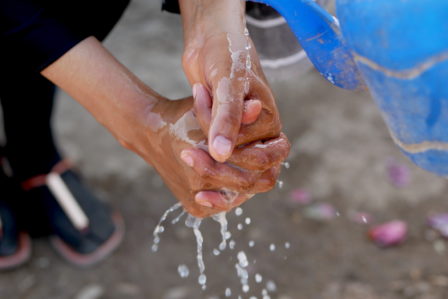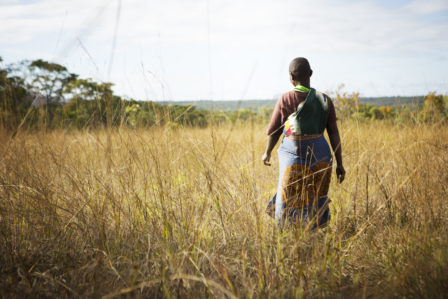A large part of the Sanitation Learning Hub’s (SLH) work is around research and learning to support gender equality and social inclusion (GESI) in sanitation and hygiene programming. This includes using and promoting gender transformative sanitation approaches and ‘Leave No One Behind’ policies and programmes: this keeps the focus on the poorest, most marginalised and hardest to reach households and communities.
SLH is offering up to 3 grants of up to £15,000 (approximately $20,000) for in-country research institutes, organisations or think tanks, to undertake GESI specific research into sanitation and hygiene in low and low-middle incoming countries. Your research will focus on those who have been overlooked or left behind. It must be co-created with local organisations and people, reflect their knowledge and concerns, and develop practical solutions.
Within proposals you can develop specific research questions on any GESI topic relevant to your own country context. Research can be undertaken in either rural or urban contexts. Some priority areas include:
- Identifying and tackling slippage
- The use and effectiveness of different support mechanisms for the construction and maintenance of sanitation facilities
- Identifying who, how and why people are being missed in current sanitation and hygiene programmes
- The links between social protection and sanitation
Criteria for this work include:
- It should take a qualitative, preferably participatory, approach
- It needs to be undertaken in collaboration with a Rights Holder Organisation and a WASH partner
- It will tackle a GESI problem associated with sanitation programming in your country
- Specific recommendations for future programming are to be proposed in consultation with a WASH programming organisation and communities
- Findings will be presented and discussed with the community, asking them what they might wish to do with the findings
Eligibility:
This call is open to all research institutes, organisations and think tanks in low or lower-middle income countries. Calls are particularly welcome from those based in Pakistan, Indonesia and Nigeria.
Support offered:
Monetary support to cover research costs: up to £15,000 per grant. This is intended to support research costs such as researcher time, accessing data/publications, additional personnel (i.e. enumerators and interpreters), travel, meetings, communication, and any other associated research costs.
Support for publication: For authors wishing to publish in a journal we will also support Open Access fees.
Application process:
Please send your proposal addressing the key components below along with CVs and support letter to [email protected], by February 18th, 2022. Unfortunately, we can only accept proposals in English. Applications will be initially reviewed by SLH and colleagues at the Institute of Development Studies before being reviewed by independent experts. Those that best cover the evaluation criteria will then be invited for a meeting with SLH staff before a final decision is made. Successful grantees will be told by March 11th 2022. Download the Terms of Reference for full details on how to structure the proposal.
If you have any questions please contact [email protected]
Frequently Asked Questions
Is this a collaborative grant?
Yes – this is a collaborative grant designed for a partnership between a research institution, a rights-holder organisation and a WASH partner. This is to try and ensure that the research is actionable.
Does the WASH partner need to work exclusively on WASH in order to be eligible?
No – as long as some of their work is focused on WASH, that is fine.
What is a rights holder organisation?
We are using the definition proposed by the GESI Self-Assessment Tool: Rights holder organisations are groups informed by a rights perspective: women’s rights organisations, disabled people’s organisations, representative organisations of sexual and gender minorities or any other marginalised group of significance to the locality. Rights holder organisations advocate for the rights of their members.
Does SLH have a list of rights holder organisations, research institutes and WASH partners they can share?
We don’t have a list of stakeholders that we are able to share. We hope that applicants will make new contacts or use existing contacts through their networks.
Does the research institute need to be the lead applicant?
No, but we would encourage that it is the lead, if possible.
What’s the timeframe for the work?
We would expect the work to be completed within 3 months of contracting.
What countries do organisations need to be based in, in order to be eligible?
We will review applications from low and lower-middle income countries.
To give you an idea, check out the countries included in UNICEF’s Game Plan to End Open Defecation (page 4). If your country doesn’t appear there, please get in touch with us on [email protected] to check.
We particularly welcome applications from Nigeria, Indonesia and Pakistan.
Would this grant support action research?
Yes. However the process is relatively short, so an action research process would be challenging to complete in this time.
Download the Terms of Reference






